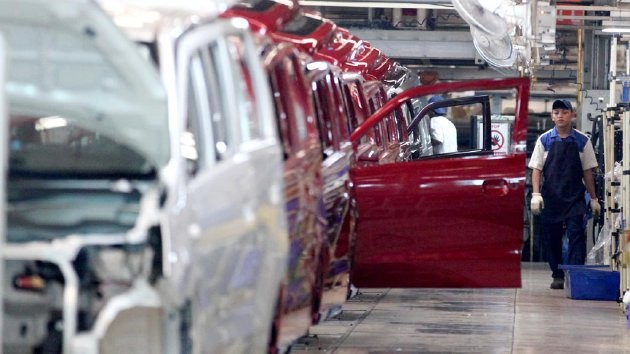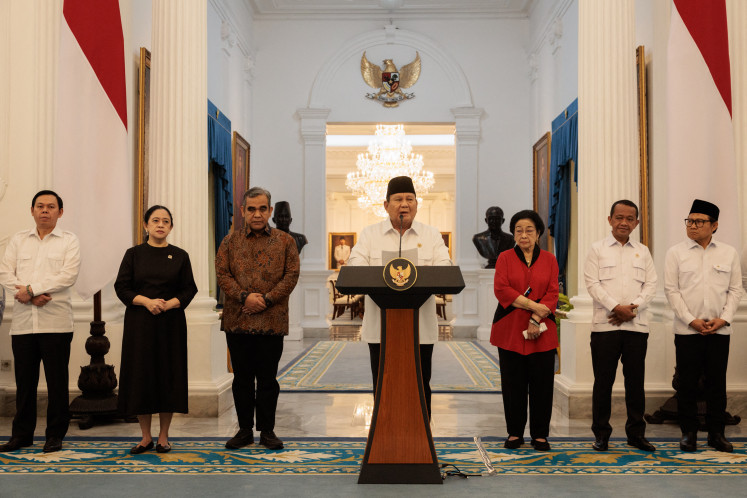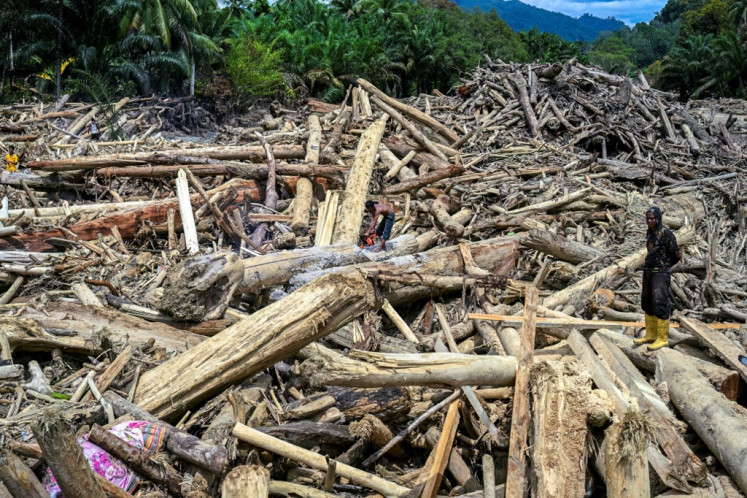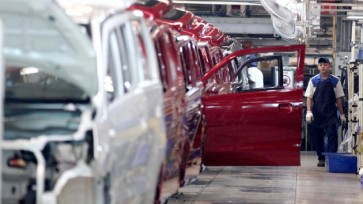Popular Reads
Top Results
Can't find what you're looking for?
View all search resultsPopular Reads
Top Results
Can't find what you're looking for?
View all search resultsReinvigorating manufacturing base urgent for exports
Unlike the prices of manufactured goods, which continue to rise, prices of commodities fluctuate.
Change text size
Gift Premium Articles
to Anyone
P
resident Joko “Jokowi” Widodo hit the nail on the head when he wondered that although our economy is akin to a person ticking all the right boxes at a health checkup, we are unable to run. With improved investment ratings, a major leap in the ease of doing business index and record-breaking stock valuations, it should be a piece of cake for us, yet it turns out to be a herculean task.
The President might have partially solved his own inquiry at the recent Trade Ministry working conference, when he lamented our outstandingly low exports, which are lower than those of Thailand, Malaysia and even Vietnam. History shows that all Asian tigers, including Japan, China, South Korea and now Vietnam, grow rapidly thanks to skyrocketing exports. In Vietnam, exports even constitute 90 percent of the GDP.
Stagnating manufacturing is the culprit behind our abysmal exports. Our exports are overly dependent on commodities. Our two largest exports are palm oil and coal, accounting for roughly 20 percent of our total exports. By comparison, Vietnam’s largest exports are broadcasting equipment and integrated circuits.
Unlike the prices of manufactured goods, which continue to rise, prices of commodities fluctuate. When commodity prices fall, our exports and our economy will be imperiled. In 2015, the price of palm oil plummeted to less than half of its 2011 price, which slowed our growth down to below 5 percent. After the 1998 crisis, our reliance on commodities like palm oil intensified, as our industry faltered. In 2000, the share of industry in our GDP stood at 27 percent; by 2017, that figure plunged to 20.5 percent. In 1997, we actually exported more electronic equipment and computers than palm oil. Now, it is the opposite.
The biggest question is how can we resist and reverse this inexorable wave of deindustrialization? The government has carried out many laudable programs to revive our industry, including building infrastructure, streamlining the bureaucracy and attracting foreign investment, all of which are indeed important. However, as our industry has yet to take off, we know that much more needs to be done.
To this end, the government should revisit its industrial policy. Some vehemently argue that other than providing the basics, such as infrastructure, the state should just stay away and let the private sector do its magic. Of course the private sector is critical, but history demonstrates that in virtually all Asian Tigers, the government aggressively fostered industrial development. The government did not just offer the soil and sit back, but they planted the seeds, watered them, gave them fertilizer, ensured that they get enough sunlight and they eventually saw their plants bear fruit.
As has been highlighted by many renowned economists, such as Joseph Stiglitz and Ha-Joon Chang, many Asian juggernauts at one point in time resorted to policies that some would deem heretical in order to nurture their industry. This is evident, for example, in trade.


















